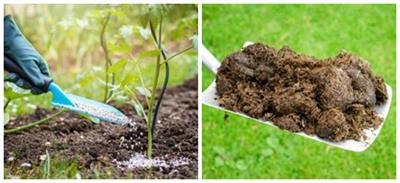PDF chapter test TRY NOW
Agriculture is the backbone of our country. Agriculture produces the primary source of raw materials for many industries, such as cotton, jute, paddy etc. Understanding the chemical properties of soil is vital because of its effect on nutrients available to the plants.
Fertilisers provide the essential nutrients which are insufficient in the soil.

Pesticides
Fertilisers may be natural or artificial that enhance the growth of plants.

Fertilisers
The essential chemicals used as fertilisers are nitrogen, phosphorous, and potassium.
In agriculture, manure and compost were used as fertilisers in the olden days, whereas chemical fertilisers are modern techniques. The chemicals used in fertilisers are of various uses to plants and soil.
Uses of chemicals present in fertilisers and their relation with plants:
- Nitrogen - Used to promote rapid growth, protein synthesis.
- Potassium - Used for resistance to drought and diseases, to increase the quality of grain.
- Magnesium - Helps in the uptake of other nutrients.
- Sulphur - Gives dark green colour to plants.
- Phosphorus - Aids in seed formation.
Fertilisers are of two different types based on the type of substances they are made of. They are organic and inorganic fertilizers. Natural waste such as fruit waste, manure, vegetable waste etc., are organic fertilisers, whereas artificially synthesized fertilisers are called inorganic fertilisers.
